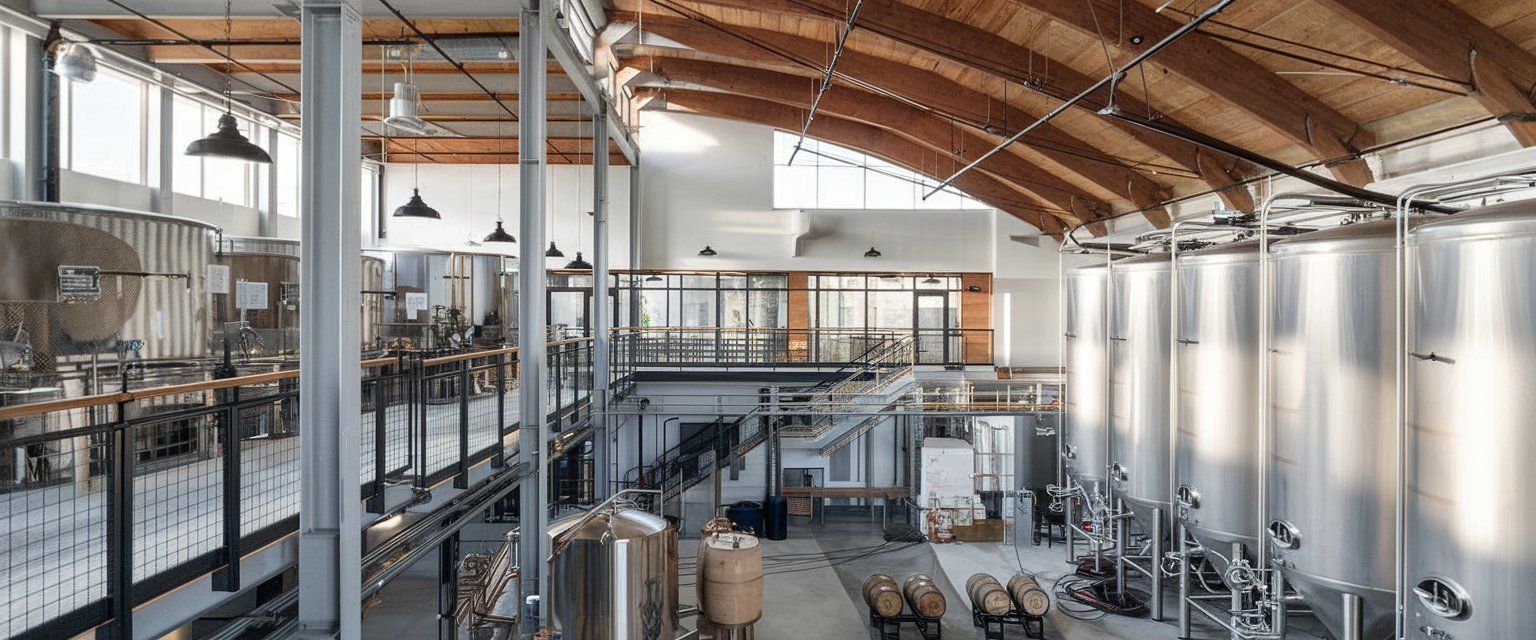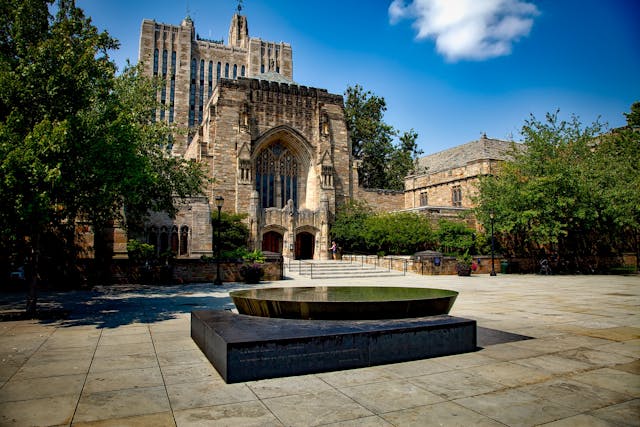Connecticut pizza isn’t just good—it’s legendary. After 15 years of guiding visitors through the state, I’ve seen so many people realize why we’re called the pizza capital of the US. New Haven-style pizza has a thin, coal-fired crust, always cooked well-done, giving it a chewy bite and a flavor you just don’t get with New York or Chicago pies.
If you’re coming to Connecticut, you’ll bump into iconic pizzerias that have made waves far beyond our borders. Modern Apizza, Frank Pepe Pizzeria Napoletana, and Sally’s Apizza routinely make “best of” lists, not just here but nationwide. Their cold-fermented dough and hand-stretched technique create that magical combo of crisp and chew.
Explore top-rated stays with no booking fees and instant confirmation. Your dream trip starts here!
Start Exploring Now

You don’t need to be a food critic to taste the difference. The gritty, well-done crust snaps when you bite in, and both classic and creative toppings show why pizza fans make Connecticut a bucket-list stop. From New Haven’s storied joints to lesser-known gems, our pizza scene delivers something you just won’t find anywhere else.
The Origins of Connecticut Pizza
Connecticut’s pizza story started in the early 1900s, right in New Haven, where Italian immigrants shaped a style that would end up famous across the Northeast.
The History of Apizza
New Haven’s thin-crust pizza—locals call it “apizza” (say “ah-BEETS”)—first popped up in the 1920s. The name itself comes from the Neapolitan dialect brought over by Italian families.
This style’s all about a thin, charred crust, cooked in coal-fired ovens blazing hot. Oddly enough, cheese isn’t standard—unless you ask for it. The big showstopper is the white clam pie. Sounds weird? Maybe. But trust me, it’s become a legend.
What sets Connecticut apizza apart? Oblong shape (not perfectly round), a crust that’s crisp yet chewy, and toppings that focus on quality, not overload.
Early Pizzerias in Connecticut
Frank Pepe Pizzeria Napoletana really kicked off Connecticut’s pizza legacy. Frank Pepe, an Italian immigrant, opened up shop in New Haven’s Wooster Street in 1925, and it’s still an institution.
Back then, Pepe sold two kinds of pizza: tomato or anchovy. Later, he introduced the white clam pizza, which is still a rite of passage for visitors.
Soon after, Sally’s Apizza (opened 1938 by Pepe’s nephew) and Modern Apizza (opened 1934) joined the scene. These spots sparked fierce local loyalties—people still argue about which is best.
Pepe’s didn’t rush to expand, but eventually opened more locations in the Northeast, sticking to those old-school methods.
Influence of Italian Immigrants
Connecticut pizza owes a lot to southern Italian immigrants who landed here in the early 20th century. Most came from Naples and nearby, bringing recipes and techniques straight from home.
What’s special? These families adapted their food to local ingredients, but stayed true to authentic methods. Unlike New York or Chicago, Connecticut pizza kept close to its Neapolitan roots.
Greek immigrants also left a mark. Plenty of Greek families opened pizzerias, adding their own twist to the evolving style.
Coal-fired ovens weren’t just tradition—they were practical. Coal was cheap, and those ovens got hot enough to create the signature char you see on Connecticut apizza.
Why New Haven Is Known as the Pizza Capital
New Haven didn’t just stumble into its pizza fame. Decades of tradition, unique cooking, and a seriously proud local scene built its reputation. The city’s pizza spots pull in critics and regular folks alike, all chasing that “apizza” experience.
Defining Pizza Capital of the United States
In January 2023, a Connecticut congresswoman declared New Haven’s pizza the “best in the country” on the House floor. Of course, New York didn’t love that, but plenty of food experts agree.
The governor even made it official—New Haven is “The Pizza Capital of America,” at least according to the state. As Mayor Justin Elicker put it, “New Haven is, and always will be, the epicenter of America’s pizza scene.”
Media outlets have jumped on board. Barstool’s Dave Portnoy called New Haven “The Pizza Capital,” and The New York Times did a pizza crawl here. Not bad for a city our size.
The Rise of New Haven Pizza
New Haven’s pizza roots go back to the early 1900s, when Italian immigrants brought their food traditions to Connecticut. Unlike other cities where pizza got “Americanized,” New Haven kept things old-world.
Family-run pizzerias popped up, passing down secret recipes and techniques that haven’t changed much. These started as neighborhood joints, but word spread, and now people travel just to eat here.
New Haven isn’t just about good pizza—it’s a whole culture, with die-hard fans and stories that go back generations.
Signature Apizza Style
Come to New Haven, and you’ll meet “apizza” (again, “ah-BEETZ”), which stands out from the crowd. Coal-fired, thin, charred crust, chewy inside—there’s nothing quite like it.
Most apizza comes with oregano, tomato sauce, and a light dusting of Pecorino Romano. Cheese? Only if you ask. This stripped-down style lets every ingredient shine.
The coal-fired ovens are key. Most classic spots crank them up over 650°F, giving the crust those signature charred bubbles and a deep flavor.
Local favorites? White clam pizza (clams, garlic, olive oil, herbs) and potato pizza. Both show off the area’s coastal roots and inventive streak.
Famous Connecticut Pizzerias
Connecticut’s pizza scene is stacked with legendary spots. These pizzerias draw crowds from all over, all chasing that coal-fired crust and those unique toppings.
Frank Pepe Pizzeria Napoletana
Frank Pepe opened his pizzeria in 1925, and many say he invented New Haven-style pizza. Coal-fired ovens give their pies that thin, crisp, just-charred-enough crust.
The White Clam Pizza is their claim to fame—fresh clams, cheese, olive oil, garlic, oregano. It helped put Connecticut on the map for food lovers.
Pepe’s has grown beyond New Haven, with locations across Connecticut, but they stick to the same standards everywhere.
Lines are part of the deal at Pepe’s, especially on weekends. Most folks say the wait is worth it for these historic pies.
Sally’s Apizza
Sally’s Apizza, another New Haven legend, opened in 1938. Salvatore Consiglio started it after working at Pepe’s. Their thin-crust pizzas, coal-fired too, come with that signature char underneath.
Sally’s is famous for its tomato pie—crushed tomatoes, a sprinkle of pecorino romano, and a drizzle of olive oil. Simple, but the flavors really pop.
For ages, Sally’s was only in New Haven, which added to its mystique. Now, they’ve opened a few more spots but are still all about quality.
Sally’s has a fiercely loyal crowd—locals, tourists, you name it. The place has starred in plenty of food shows and articles, so it’s safe to call it a Connecticut pizza landmark.
Other Notable New Haven Pizzerias
There’s more to New Haven’s pizza than just Pepe’s and Sally’s. Other pizzerias have built their own devoted followings.
Modern Apizza
Modern Apizza has been slinging brick oven pizza since 1934. It’s on State Street, a bit off the main Wooster Street drag, but it draws its own crowd. Modern feels less touristy than the big names.
The coal-fired brick oven gets crazy hot, creating a crust with just the right char—a favorite for many locals.
No reservations here, so you’ll probably wait if you show up at peak times. The line moves pretty quickly, though, compared to some other spots.
The dining room’s nothing fancy—just simple tables and booths. The focus is all on the pizza, as it should be.
Modern’s Signature Offerings
The Italian Bomb is the pie everyone talks about at Modern. It’s loaded with bacon, sausage, pepperoni, mushroom, onion, pepper, and garlic. If you love meat, this one’s for you.
Their plain pie with mozzarella (just called a “plain” around here) has a thin, crisp crust and the perfect cheese-to-sauce balance. Regulars say it’s the real test of a New Haven pizzeria.
They also do a white clam pizza—less famous than Pepe’s, but still tasty. It’s got fresh clams, garlic, olive oil, and herbs.
You can order small or large. A small is plenty for one hungry person. Prices are pretty reasonable, especially compared to some upscale places.
Classic Connecticut Pizza Varieties
Connecticut pizza isn’t just one thing. Locals cherish these unique pies, and visitors seek them out. The state’s coastal vibes and Italian roots show up in every slice.
White Clam Pizza
White clam pizza is probably Connecticut’s most famous invention. Frank Pepe Pizzeria Napoletana came up with it in the 1960s. No tomato sauce here—just clams, garlic, olive oil, oregano, and cheese on a thin, charred crust.
The coal-fired oven gives it that smoky flavor and signature char. You’ll find white clam pizza all over Connecticut now, not just at Pepe’s. Some places add bacon or lemon, others keep it classic.
The best versions use freshly-shucked clams, not the canned stuff. That fresh, briny taste pretty much sums up Connecticut’s coastal cuisine.
Tomato Pie Tradition
Connecticut’s tomato pie is a different animal compared to pizza you’ll find in most other places. It’s got a thin, crackly crust, gets topped with crushed tomatoes, a dusting of grated cheese, and that’s pretty much it—no mountain of toppings here.
In New Haven, they call this style “apizza” (say it like “ah-BEETZ”). They bake these pies in coal-fired ovens until the edges are just a bit charred. Sally’s Apizza and Modern Apizza are two legendary spots where you can taste the real deal.
The magic of Connecticut tomato pies? It’s all about keeping things simple. They let top-notch crushed tomatoes and that crisp crust do the talking. Around here, cheese is a topping, not a given.
Order your pie “plain” (just tomato sauce) or “with mootz” (mozzarella). This tradition goes way back to 1925, when Frank Pepe opened his original spot and kicked off a pizza legacy that still brings in fans from everywhere.
Essential Ingredients in Connecticut Pizza
What makes Connecticut pizza pop is its distinct flavor and quality ingredients. Local pizza makers are picky about every component, aiming for their own signature taste.
Mozzarella and Cheese Blends
Connecticut-style pizza usually features a specific cheese blend that gives it that recognizable flavor. Most spots go with whole milk mozzarella and mild white cheddar in a 3:1 ratio. The mozzarella (about 8 ounces) melts nice and stretchy, while the cheddar (about 3 ounces) sneaks in a gentle tang.
Some New Haven-style “apizza” places swap in or add pecorino romano for a salty, nutty kick—it’s an aged sheep’s milk cheese that just works with the rest.
At Connecticut pizza joints, you’ll see they don’t drown their pies in cheese. They go easy, so the other flavors can actually stand out.
Fresh Oregano and Basil
Fresh herbs are non-negotiable for Connecticut pizza makers—especially oregano and basil. These fragrant greens are a huge part of what makes Connecticut pizza taste different from everywhere else.
Oregano gets a starring role, adding an earthy, almost bitter note that cuts through the richness. They scatter it on before baking, so the heat brings out all those oils.
Basil usually shows up at the end, right after the pizza leaves the oven. That way, it keeps its bright flavor and color. Some places even grow their own herbs, which honestly, you can taste.
If you’re making Connecticut-style pizza at home, don’t bother with dried herbs. Fresh oregano and basil make a world of difference—totally worth hunting down or growing yourself.
The Connecticut Pizza Experience
There’s just something about Connecticut’s pizza tradition. The “apizza” here (again, “ah-BEETZ”) is all about thin, blistered crusts and simple, top-quality toppings. Locals and out-of-towners have been hooked for generations.
Coal-Fired Oven Methods
This pizza owes its character to coal-fired ovens blasting at over 800 degrees. That super-high heat creates a crust that’s crisp and charred outside, but still chewy in the middle—classic Connecticut apizza.
Most old-school shops use brick or stone-lined ovens that hold heat like champs. Dough gets stretched by hand, usually into shapes that are more rustic than round.
Coal gives the pizza a smoky depth that you just don’t get from gas or electric. Many spots still use the same methods Italian immigrants brought over in the early 1900s.
Dining at Iconic Establishments
Walking into one of Connecticut’s legendary pizzerias is an experience all its own. Some of these places haven’t changed in decades—think retro booths, checkered tablecloths, and walls plastered with old photos.
Don’t be surprised if there’s a wait, especially on weekends. The most famous spots often have lines before the doors even open, and forget about reservations—it’s first-come, first-served.
Most traditional apizza joints only serve whole pies, not slices. The “plain” pie is just tomato sauce, oregano, and a sprinkle of pecorino romano—mozzarella’s extra, so you have to ask for it!
If you’re feeling adventurous, order the white clam pie. It’s a Connecticut original loaded with fresh littleneck clams, garlic, olive oil, and herbs on a mozzarella-free base. Not for everyone, but hey, you might love it.
Pizza Capital Trail and Culinary Tourism
Connecticut has leaned into its pizza fame by creating the Pizza Capital Trail, which highlights the best independent pizzerias and gives food lovers a new excuse to travel the state. It’s a tasty way to explore, honestly.
Exploring the Pizza Capital Trail
This trail rounds up Connecticut’s 100 most beloved pizza spots. The Connecticut Office of Tourism put it together, guiding folks to the can’t-miss places all over. Voting for the top pizzerias wrapped up on May 1, 2025—over 13,000 pizza fans weighed in.
By late September 2025 (just in time for National Pizza Month), they’ll officially unveil the trail. The top 20 spots are already out there, picked for their popularity and, frankly, their pizza.
Follow the trail and you’ll hit a bunch of different styles and specialties. A lot of the must-visit stops are in New Haven County, home of those iconic coal-fired thin-crust pies.
Pizza Tours and Local Guides
Several companies run guided pizza tours through Connecticut’s famous cities. Usually, you’ll visit three or four pizzerias, get shuttled around, and hear a few stories along the way.
Local “pizza gurus” often lead these tours, sharing the backstory of each spot, what makes their pies special, and how different immigrant communities shaped the scene here.
If you’d rather go solo, self-guided tours are easy. Grab a map of the Pizza Capital Trail and set your own pace. Lots of folks turn it into a weekend trip, staying at hotels that throw in pizza-themed perks for trail-goers.
There are even digital tools to track your stops and collect “stamps” at each place. Some restaurants offer special tastings or will let you peek in the kitchen if you’re following the trail. It’s a fun way to eat your way through Connecticut, if you ask me.
Connecticut Pizza’s Influence Across the Country
Connecticut pizza—especially that New Haven “apizza”—has made waves far beyond the state. Plenty of top pizzerias around the country openly draw inspiration from Connecticut’s legendary spots.
In 2025, a group from Connecticut’s pizza scene even chartered a jet to Washington, DC, aiming to crown New Haven as the nation’s pizza capital. That move really says a lot about the pride (and maybe a little swagger) Connecticut folks have about their pies.
Connecticut’s pizza trail, which highlights 100 much-loved independent pizzerias, has become a blueprint for other states wanting to shine a light on their own food heritage. That whole “trail” idea? It’s catching on in places eager to show off their local eats.
Frank Pepe Pizzeria Napoletana and a few other famous joints have branched out, bringing their signature thin-crust, coal-fired style to new cities. These days, you’ll spot Connecticut-style pizzerias popping up in major metro areas, with chefs proudly mentioning their New Haven roots.
People travel from all over just for a real slice of Connecticut pizza. Food bloggers, influencers, and TV shows keep shining a spotlight on the state’s unique style, and the buzz only seems to grow.
So what’s the secret sauce? Connecticut pizza stands out for its:
- Thin, charred crust
- Simple, top-notch toppings
- Coal-fired baking
- White clam pizza—yep, that’s a thing
As Governor Lamont once put it, “Connecticut pizza isn’t just food, it’s a way of life.”
Find available hotels and vacation homes instantly. No fees, best rates guaranteed!
Check Availability Now

















